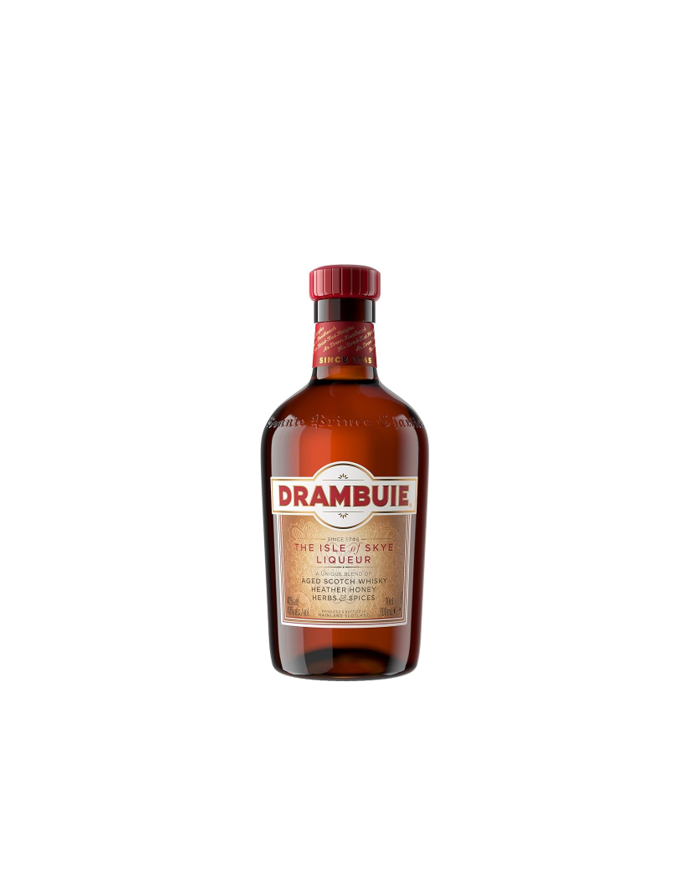



The art of combining whisky, honey and spices, a Scottish experience that captivates all the senses.

Pagos 100% seguros por TPV con tarjeta

Transporte gratuito para compras superiores a 120€

Atención al cliente para cualquier duda
Drambuie is a unique Scottish liqueur, originally from the Isle of Skye, that combines the tradition of Scotch whisky with a unique touch of honey and herbs. Its history dates back to the 18th century, when it is believed to have been created from a secret recipe given to the Jacobite prince Charles Edward Stuart after the defeat at the Battle of Culloden. Over the years, Drambuie has maintained its distinctive character, becoming an iconic drink to be enjoyed neat, on the rocks or in classic cocktails. Its sophisticated heritage and versatile character make it a liqueur appreciated all over the world.
TASTING NOTES
COLOR: It has a deep golden hue, similar to the amber of an autumn sunset. Its glow is warm and soft, inviting a rich and enveloping sensory experience. The light reflects off its surface with copper sparkles, giving a sense of warmth from the first glance.
NOSE: The nose opens with a harmonious blend of sweetness and spice. Golden honey stands out initially, followed by a subtle hint of dried fruits, such as raisins or ripe figs, which bring a fruity complexity. Herbs and spices, such as cinnamon and a slight hint of ginger, are perceived as a whisper in the background, balancing the sweetness with its freshness and smoothness. The whisky aroma, slightly smoky, gives a solid base to this olfactory symphony.
TASTE: In the mouth, Drambuie is smooth and velvety, with a rich texture that glides over the palate. The flavor begins with a warm burst of honey that combines with subtle hints of caramel and vanilla. As it progresses, cinnamon spice, ginger and a light clove note slowly emerge, providing a nicely balanced complexity. The whiskey in the background gives body and structure, while a slight hint of nutmeg and herbs comes through in the aftertaste, leaving a lingering, enveloping sensation that invites a second glass.